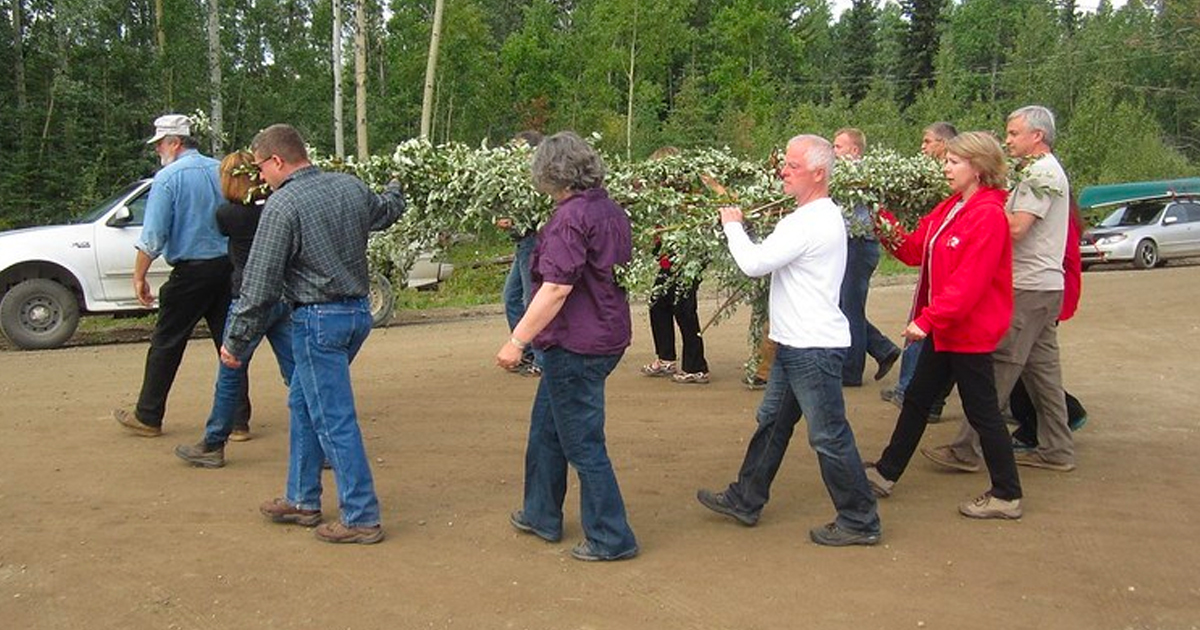Column originally appeared in The Dawson Creek Mirror
I sat in the healing circle flanked by others invited to bear witness to the telling of truth and the sharing of deep, unimaginable pain. Each of us represented an institution: the Civil Service, the Clergy, the RCMP, and me, B.C.’s Minister of Aboriginal Relations and Reconciliation at the time.
As a non-Indigenous person, I must acknowledge that I will never fully understand the inter-generational trauma caused by the residential school system and the other culturally genocidal assimilation tools used against the people indigenous to these lands.
This fact was seared onto my soul years ago over a few heart wrenching days spent in the company of survivors and their families at a healing camp on the grounds of a former residential school at a place called Lower Post. In the course of its work, the Truth and Reconciliation Commission supported many such gatherings across the country.
If the name Lower Post conjures up an isolated and lonely place, you would be right. Located in the northwest quadrant of British Columbia just below the Yukon border, it is surrounded by the natural beauty one expects from B.C.’s back country. But apart from the Liard Hot Springs a couple of hours away, it is an otherwise unremarkable place.
There I sat in the healing circle flanked by others invited to bear witness to the telling of truth and the sharing of deep, unimaginable pain. Each of us represented an institution: the Civil Service, the Clergy, the RCMP, and me, B.C.’s Minister of Aboriginal Relations and Reconciliation at the time. We held tiny bundles wrapped in cloth, a traditional symbol representing our commitment to remember what we were about to hear and to tell the story as witnesses. Looking back, I doubt any one of us could ever forget.
One by one, Elders and Chiefs alike told the truth and shared their pain. I couldn’t help seeing them as the frightened, innocent little boys and little girls who had suddenly found themselves far from their homes and even farther from their own world.
We listened to the older brother who recounted hearing the screams of his younger sister while she underwent the abortion of a priest’s child. He wept openly now because he couldn’t save her then.
We listened to the 80-year-old grandmother disclosing for the first time the daily rape and sexual touching she was subjected to. She cried too because that little girl had her innocence stolen forever.
We listened to story after story of beatings and soul-destroying punishments inflicted by those who were supposed to love and care for them.
Then, it was time for us to respond. But how?

A voice from the chair beside me said the only thing that could be said: “I’ve lived in Canada all my life. I’ve always been proud to be Canadian. But today, I am ashamed – deeply ashamed.”
Silence followed and then the grandmother spoke again – stronger now. “Thank you – I always thought I was the one who should feel ashamed.”
The sharing continued, the power of the truth as evidenced through tears and wails and hand holding and embraces between strangers. But it was out – the truth was out.
Over the next few days there was more pain, more anguish but also the beginnings of hope and healing. At the close of the camp, we gathered together around the sacred fire. The telling of the truth had been the first step on what would be a long journey – a lifetime journey for those wounded yet brave survivors.
The Truth and Reconciliation Commission didn’t just make recommendations to governments and institutions. It spoke to all Canadians. Its findings made us all witnesses to a story that must be told. It made each one of us responsible for truth and reconciliation in our own circles and throughout our own communities.
But make no mistake, the truth must come first. The ugly, distasteful, unimaginable truth. We must look at it and see it in the cold light of day.
And don’t ever say it’s too hard to look – too awful.
Those lonely, frightened, tortured, innocent victims didn’t have the choice to look away.
Mary Polak is a former BC Minister of Aboriginal Relations and Reconciliation. She is currently a Strategic Advisor with Maple Leaf Strategies.
Learn more about Maple Leaf’s Reconciliation Strategies.
